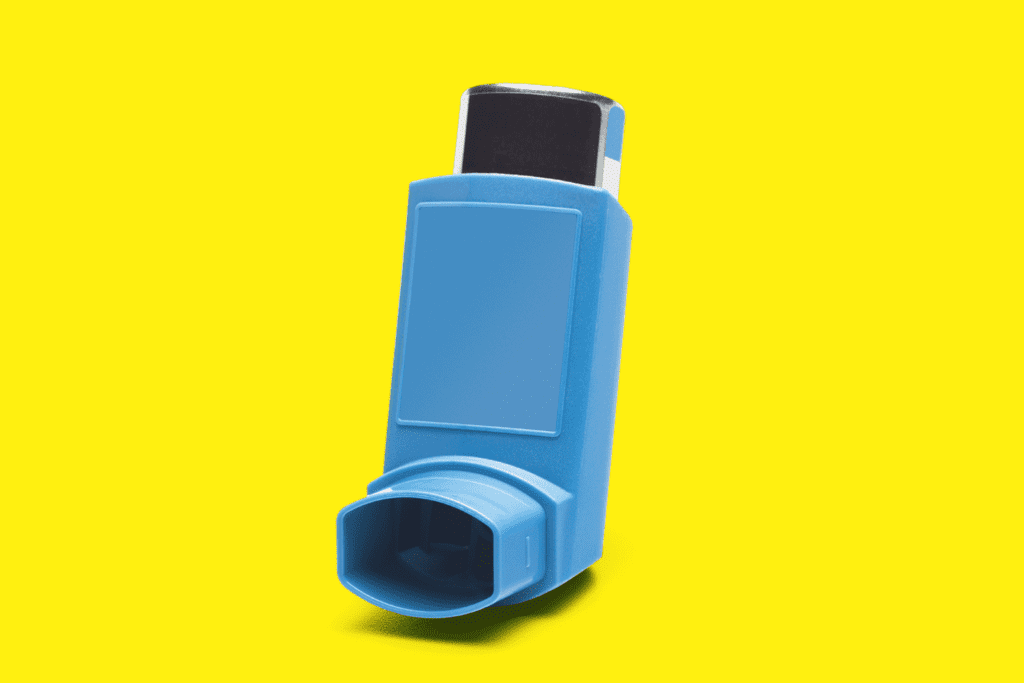As many as 1 in 13 people have asthma, a swelling of the airways that can lead to serious complications. Learn some of the lesser-known facts about this common disease, and what you can do to prevent attacks.
An inflammation of the bronchial tubes, asthma makes it difficult to get adequate air to the lungs. Many even equate the struggle for air during an asthma attack as feeling like a fish out of water. But while we frequently think of asthma in terms of attacks, it is actually a chronic condition marked by flare-ups due to factors like allergens, weather, exercise, and illness. Once triggered, asthma causes shortness of breath, chest tightness and pain, coughing, wheezing, and other pulmonary symptoms.
In recent decades, asthma rates have risen, and unfortunately the numbers continue to grow. Today, 7.8% of adults and 8.4% of children suffer from the disease.

It is one of America’s most costly medical conditions, with an annual price tag of more than $56 billion in health care costs and lost wages.
Although many of us may suffer from asthma or know someone who does, some facts might still surprise you.
You can develop it as an adult.
We often think of asthma as a childhood disease. After all, the percentage of children diagnosed with asthma is higher than adults, and it is the primary cause of chronic illness for those younger than 18.
However, it’s not uncommon for adults to develop asthma. When an adult over 20 is diagnosed with asthma, it’s called adult-onset asthma. Adult-onset and childhood asthma share many of the same attack triggers: respiratory infections, stress, exercise, smoke, mold, dust, dander, and other environmental factors. But adult and childhood asthma can differ in some important ways, too. Childhood asthma is typically marked by intermittent asthmatic episodes, and symptoms may even subside before adulthood. “Asthmatic children are more likely to have allergic conditions such as atopic dermatitis (an itchy, scaly, red rash) and food allergies,” says Dr. Susan Raschal, an allergist with Covenant Allergy and Asthma Care. “In contrast, adults frequently face more persistent symptoms and may need prolonged daily medications to control them.”
Certain medications may exacerbate symptoms.
As many as 10% of adults suffering from asthma find their symptoms worsened by NSAIDS, or nonsteroidal anti-inflammatory drugs, taken for issues unrelated to their asthma. These can include ibuprofen (Motrin, Advil) and naproxen (Aleve), among others. According to Dr. Todd Levin, an allergist with Chattanooga Allergy Clinic, “When this subset of patients takes aspirin, or sometimes any NSAIDS, their asthma will flare up.”
Some asthma patients also have sensitivities to other over-the-counter medications like cold medicine, or prescription medicines like beta blockers and ACE inhibitors, which are used to treat high blood pressure and other issues related to heart disease. It’s important to talk to your doctor before taking any medications if you suffer from asthma. He or she may give you a test dose under medical supervision to determine whether or not you have a sensitivity. If you do take medications, carefully monitor yourself for any symptoms such as facial swelling, hives, or difficulty breathing, and seek medical help immediately if symptoms occur.
Common allergens are often triggers.


Many people with asthma also suffer from allergies. In fact, the most common type of asthma is allergic asthma. Dr. Curt Chaffin, an allergist with the Allergy & Asthma Group of Galen, shares, “Up to 80% of people with asthma have allergies as the primary trigger.”
With allergic asthma, your airways are sensitive to certain allergens. If those allergens enter your body, your immune system may overreact. This results in the tightening of the smooth muscle around the airway, inflammation of respiratory tissue, and mucus production inside the airway.
Common allergen triggers include smoke, dust mites, pollen, air pollution, pets, and mold. Triggers may vary from person to person, so it’s important to determine what your triggers are and take steps to avoid them. This might be as easy as regularly changing air filters to reduce dust, or wearing a filtered mask while doing yard work to reduce pollen exposure. You can also have an allergist perform skin or blood tests to help determine your triggers.
It may be helpful to keep a journal of your allergy flare ups to help identify your personal triggers.
Fortunately, for those suffering from allergic asthma there is an especially effective treatment. Dr. Levin explains, “Allergy immunotherapy, also known as allergy shots, can tremendously decrease inflammation and lower the need for medications.”
Your job might be causing flare ups.
Exposure to allergens in the workplace could cause or worsen asthma symptoms. Termed occupational asthma, 1 in 6 asthma cases is related to workplace exposure. For example, a health care worker might develop a sensitivity to the natural rubber latex in gloves, or an insulation installer could become sensitive to the chemicals in insulation.
Dr. Chaffin shares, “Occupational asthma is a fairly rare form of asthma, but it may be underappreciated. A lot of people may realize problems at work but never get diagnosed. Once you recognize the problem and can get it fixed, it can be life changing.”
If you have a family history of allergies, you’re more likely to develop occupational asthma. If you suspect you might be suffering from work-related allergens, pay attention to whether your symptoms improve when you’re away from the workplace. If you can determine what allergens might be affecting you, you can work with your employer to take steps to reduce your exposure.
Stress can make it worse.
Stress is a particularly complicated asthma trigger. In extreme situations, your body responds to emotion with physiological changes that affect your immune response. “It can really be a catch-22,” says Dr. Levin. “Stress may increase asthma symptoms like shortness of breath, and the shortness of breath can increase stress.” This cycle where the stress feeds the asthma symptoms, and the asthma symptoms cause more stress can seem inescapable.
If you have asthma, it’s important to plan for stressful situations and identify calming techniques. When you notice stressful thoughts, try to replace them with positive ones. Employ deep breathing exercises to calm yourself. Most importantly, try to develop lifelong daily habits that will help control stress such as meditating, exercising, eating a balanced diet, and getting plenty of sleep.
Your period can affect your symptoms.
Research suggests that changes in hormone levels and body temperature throughout a woman’s menstrual cycle can affect her inflammatory response and therefore affect her asthma symptoms. Dr. Raschal explains, “Hormones are an asthma trigger; therefore, menses may lead to symptoms. In fact, studies have shown girls were more likely to report worsening asthma symptoms after puberty, which may help explain the increased risk in girls for developing asthma and having persistent severe symptoms as they age.”
Women with irregular periods tend to have more hormone-related asthma symptoms than those with regular periods. Pregnancy can also affect symptoms, increasing the risk of an asthma attack in some women while improving symptoms in others. Likewise, women undergoing hormone replacement therapies may have improved or worsening asthma symptoms.
If you notice increased symptoms around your period, there are some steps you can take to improve your hormone-related asthma conditions. Try keeping a diary of symptoms so you’ll know at what point in your cycle symptoms increase. Also, be especially aware of your triggers at those times and do your best to avoid anything that might make your symptoms worse. Talk with your doctor about possible options to control symptoms such as increasing your asthma medications during your period.


Dr. Todd Levin
Allergist, Chattanooga Allergy Clinic


Dr. Curt Chaffin
Allergist, Allergy & Asthma Group of Galen


Dr. Susan Raschal
Allergist, Covenant Allergy and Asthma Care

